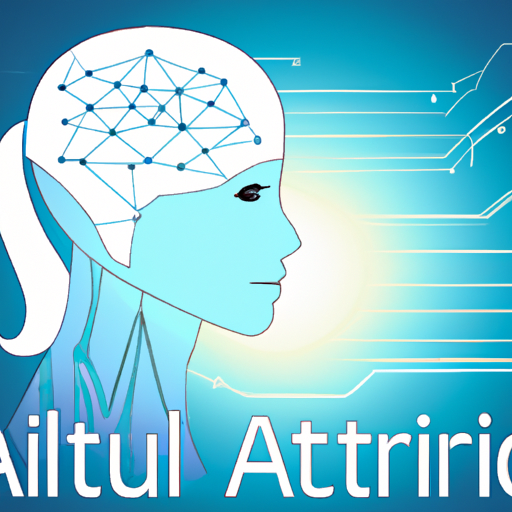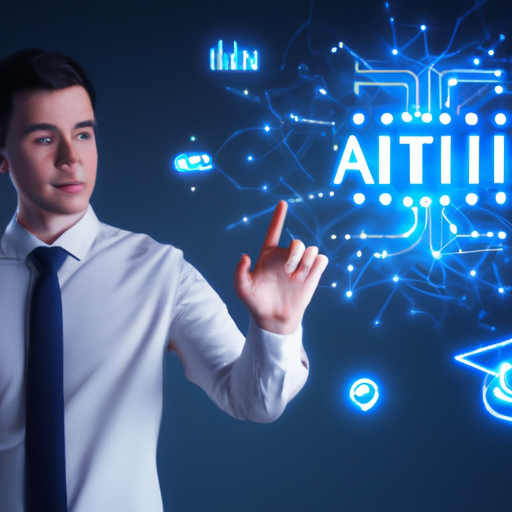-
Table of Contents
- Introduction
- AI and Machine Learning: Exploring the Benefits and Challenges of Automation
- The Ethics of AI: Exploring the Moral Implications of Artificial Intelligence
- The Future of AI: What We Can Expect from AI in the Coming Years
- The Impact of AI on Society: How AI Has Changed the Way We Live
- The Early Days of Artificial Intelligence: How AI Developed from the 1950s to the Present
- Conclusion
“Unlock the Past, Shape the Future: Exploring the History and Evolution of AI”
Introduction
The history and evolution of Artificial Intelligence (AI) is a fascinating topic that has been studied and discussed for decades. AI has been around since the 1950s, and has evolved significantly since then. AI has been used in a variety of applications, from medical diagnosis to autonomous vehicles. In this discussion, we will explore the history and evolution of AI, from its early beginnings to its current state. We will also discuss the potential future of AI, and how it may shape our lives in the years to come.
AI and Machine Learning: Exploring the Benefits and Challenges of Automation
AI and machine learning are rapidly becoming integral components of the modern world. As technology advances, automation is becoming increasingly commonplace in a variety of industries. AI and machine learning offer a range of benefits, from increased efficiency to improved accuracy. However, these technologies also present a number of challenges that must be addressed in order to ensure their successful implementation.
The primary benefit of AI and machine learning is their ability to automate processes that would otherwise require manual labor. Automation can reduce the amount of time and resources required to complete a task, allowing businesses to focus on more important tasks. Additionally, AI and machine learning can improve accuracy by eliminating human error. This can be especially beneficial in industries such as healthcare, where accuracy is essential.
However, AI and machine learning also present a number of challenges. One of the most significant is the potential for bias. AI and machine learning algorithms are only as accurate as the data they are trained on, and if the data is biased, the results will be as well. Additionally, AI and machine learning can be difficult to implement, as they require significant resources and expertise. Finally, there is the potential for misuse, as AI and machine learning can be used to manipulate or exploit users.
In conclusion, AI and machine learning offer a range of benefits, from increased efficiency to improved accuracy. However, these technologies also present a number of challenges that must be addressed in order to ensure their successful implementation. By understanding the potential benefits and challenges of automation, businesses can make informed decisions about how to best utilize these technologies.
The Ethics of AI: Exploring the Moral Implications of Artificial Intelligence
The development of artificial intelligence (AI) has been a major breakthrough in the field of technology, and its potential applications are seemingly limitless. However, with the rapid advancement of AI, it is important to consider the ethical implications of this technology. This article will explore the moral implications of AI, and discuss the potential risks and benefits of its use.
First, it is important to consider the potential risks of AI. AI systems are designed to make decisions based on data, and as such, they can be subject to bias and errors. This can lead to decisions that are not in the best interests of the people affected by them. Additionally, AI systems can be used to manipulate people, as they can be programmed to target certain individuals or groups with specific messages. This could lead to a situation where people are being manipulated without their knowledge or consent.
On the other hand, AI can also be used for positive purposes. AI systems can be used to automate mundane tasks, freeing up people’s time for more meaningful activities. Additionally, AI can be used to improve decision-making processes, as it can analyze large amounts of data quickly and accurately. This could lead to more efficient and effective decision-making, which could benefit society as a whole.
Ultimately, the ethical implications of AI depend on how it is used. It is important to consider the potential risks and benefits of AI before implementing it in any situation. Additionally, it is important to ensure that AI systems are designed and implemented in a way that is ethical and responsible. This includes ensuring that AI systems are not used to manipulate people, and that they are designed to make decisions that are in the best interests of those affected by them.
The Future of AI: What We Can Expect from AI in the Coming Years
The future of Artificial Intelligence (AI) is an exciting prospect. In the coming years, AI is expected to become increasingly sophisticated and capable of performing complex tasks. AI is already being used in a variety of industries, from healthcare to finance, and its potential applications are virtually limitless.
In the near future, AI is expected to become more intelligent and capable of performing more complex tasks. AI will be able to learn from its experiences and adapt to changing environments. This will enable AI to become more efficient and accurate in its decision-making. AI will also be able to interact with humans in a more natural way, allowing for more effective communication.
AI is also expected to become more integrated into everyday life. AI-powered devices such as smart speakers and virtual assistants will become commonplace, allowing users to access information and services quickly and easily. AI-powered robots will also become more common, performing tasks such as cleaning and delivery.
AI is also expected to become more secure. AI-powered security systems will be able to detect and respond to threats more quickly and accurately than ever before. AI-powered facial recognition systems will also become more common, allowing for more secure access to buildings and other areas.
Finally, AI is expected to become more ethical. AI-powered systems will be able to make decisions based on ethical considerations, such as fairness and justice. This will ensure that AI-powered systems are used responsibly and ethically.
The future of AI is an exciting prospect. In the coming years, AI is expected to become increasingly sophisticated and capable of performing complex tasks. AI will become more integrated into everyday life, more secure, and more ethical. The possibilities for AI are virtually limitless, and the future of AI is sure to be an exciting one.
The Impact of AI on Society: How AI Has Changed the Way We Live
Artificial Intelligence (AI) has had a profound impact on society, revolutionizing the way we live and interact with the world around us. AI has been used to automate mundane tasks, improve decision-making, and even create new forms of entertainment. In this article, we will explore the various ways AI has changed the way we live.
One of the most significant impacts of AI is its ability to automate mundane tasks. AI-powered robots are now used in a variety of industries, from manufacturing to healthcare. These robots are able to perform tasks with greater accuracy and efficiency than humans, freeing up human labor for more complex tasks. AI is also being used to automate customer service, allowing companies to provide faster and more personalized service to their customers.
AI is also being used to improve decision-making. AI-powered algorithms are being used to analyze large amounts of data and make predictions about the future. This has enabled businesses to make more informed decisions and reduce the risk of making costly mistakes. AI is also being used to detect fraud and other suspicious activity, helping to protect businesses from financial losses.
Finally, AI is being used to create new forms of entertainment. AI-powered video games are becoming increasingly popular, allowing players to experience a more immersive gaming experience. AI is also being used to create virtual assistants, which can help users with tasks such as scheduling appointments and managing their finances.
In conclusion, AI has had a profound impact on society, revolutionizing the way we live and interact with the world around us. AI has enabled us to automate mundane tasks, improve decision-making, and create new forms of entertainment. As AI continues to evolve, it is likely that its impact on society will only become more profound.
The Early Days of Artificial Intelligence: How AI Developed from the 1950s to the Present
The development of Artificial Intelligence (AI) has been a long and fascinating journey, beginning in the 1950s and continuing to the present day. AI is a branch of computer science that focuses on the development of machines that can think and act like humans.
In the 1950s, the first attempts at AI were made by British mathematician Alan Turing. Turing proposed the Turing Test, which is a test of a machine’s ability to exhibit intelligent behavior indistinguishable from that of a human. This test is still used today to evaluate the capabilities of AI systems.
In the 1960s, AI research began to focus on the development of expert systems, which are computer programs that can solve complex problems. These systems were designed to mimic the behavior of experts in a particular field. This research led to the development of the first AI-based computer game, called “Nim”, in 1967.
In the 1970s, AI research shifted to the development of natural language processing (NLP) systems. These systems were designed to understand and respond to human language. This research led to the development of the first chatbot, ELIZA, in 1966.
In the 1980s, AI research focused on the development of neural networks, which are computer systems modeled after the human brain. This research led to the development of the first AI-based computer vision system, called “Neural Network”, in 1982.
In the 1990s, AI research shifted to the development of machine learning algorithms. These algorithms are designed to learn from data and improve their performance over time. This research led to the development of the first AI-based self-driving car, called “Stanley”, in 2005.
Today, AI research continues to focus on the development of more advanced algorithms and systems. These systems are being used in a variety of applications, from healthcare to finance to robotics. As AI technology continues to evolve, it is likely that it will become even more integrated into our lives.
Conclusion
In conclusion, AI has come a long way since its inception in the 1950s. It has evolved from a simple concept to a powerful tool that is used in many different industries. AI has the potential to revolutionize the way we live and work, and its future is bright. As AI continues to develop, it will become even more powerful and useful, and its applications will become even more widespread.



